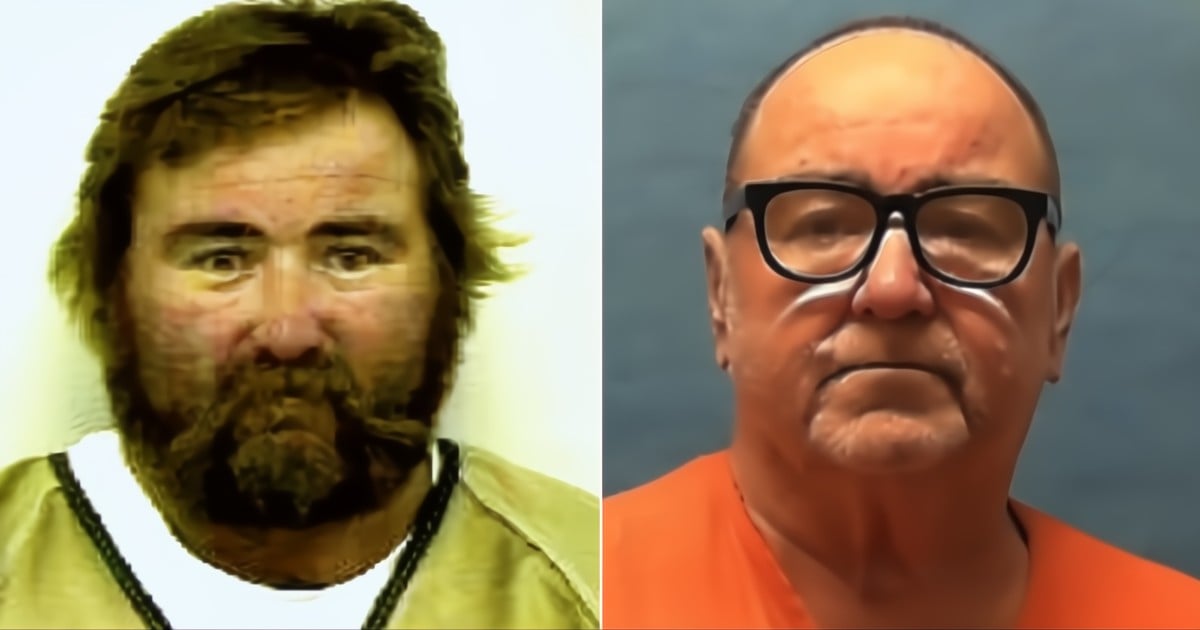
Related videos:
The governor of Florida, Ron DeSantis, signed the first death sentence of the state for 2025 last Friday, authorizing the execution of James Dennis Ford, a man convicted of the brutal murder of a couple nearly three decades ago.
Ford has been sentenced to death for the murders of Greg and Kimberly Malnory, who were attacked during a fishing trip in Charlotte County in 1997. The execution is scheduled for February 13 at Florida State Prison.
According to court documents, both suffered fatal blows and gunshots, while Kimberly was also raped before being murdered. Her body was found near the couple's truck, where their 22-month-old baby was left abandoned for over 18 hours, exposed to the elements and covered with the blood of his mother.
Ford was also convicted of sexual assault and child abuse, further intensifying the brutality of the case, the agency AP reported.
The use of the death penalty under DeSantis' government
Ford's execution will be the first in Florida in 2025, following a period during which state executions have varied significantly.
In 2024, Florida carried out only one execution, in contrast to the six conducted in 2023, a year when DeSantis was in the midst of his campaign for the Republican presidential nomination.
During the previous three years, the governor did not authorize any executions, marking a period of relative inactivity in the application of the death penalty in the state.
The return to frequent executions in 2023 was interpreted by analysts as an attempt by DeSantis to bolster his image as a "tough-on-crime" leader and appeal to more conservative voters.
Florida is one of the states with the highest use of the death penalty in the United States, a topic that deeply divides public opinion. According to data, the state has executed 103 individuals since the death penalty was reinstated in 1976, making it one of the most active in the application of this punishment.
An emblematic case due to its brutality
The case of James Ford is particularly striking due to the brutality of the crimes committed. The murder of the Malnorys and the vulnerability of their 22-month-old baby deeply affected the community in 1997, making it an emblematic case in Florida's criminal history.
During the trial, the DNA evidence and testimonies condemned Ford, who has since remained on death row.
The signing of this ruling once again highlights Florida's stance on capital punishment. Critics have pointed out that the state's judicial system has a history of controversies, with convictions that have later been overturned due to procedural errors or insufficient evidence.
However, cases like that of Ford, where the evidence is compelling, strengthen the arguments of those who advocate for the death penalty as a necessary tool to punish particularly heinous crimes.
The debate on the death penalty in Florida
The use of the death penalty remains a contentious issue in Florida and across the United States. While advocates argue that it serves as a form of justice for victims and acts as a deterrent to future crimes, opponents emphasize the risks of condemning the innocent and the high costs associated with lengthy legal processes.
In recent years, states like California and Oregon have chosen to suspend the death penalty, increasing the pressure for others to reconsider its implementation.
At the federal level, there have been significant movements regarding the death penalty. In December 2024, President Joe Biden commuted the sentences of 37 people on death row, including one individual of Cuban descent, changing them to life sentences without the possibility of parole.
With this action, the Democrat reaffirmed his commitment to judicial reform and his stance against the death penalty, except in exceptional cases such as terrorism and hate-motivated mass murders.
However, the former president and elected leader, Donald Trump has announced that he will reinstate the death penalty at the federal level for rapists, murderers, and pedophiles when he takes office in January 2025.
For DeSantis, this decision reinforces his political stance in a state where a large portion of the population supports the death penalty, especially in cases of extreme violence like Ford's. However, the debate over its effectiveness, ethics, and costs persists, keeping the issue as one of the most controversial in the state's criminal justice policy.
With the execution scheduled for February, Ford's case serves as a reminder to Floridians of the enduring reality of the death penalty and the deep divisions it creates in society.
Filed under: